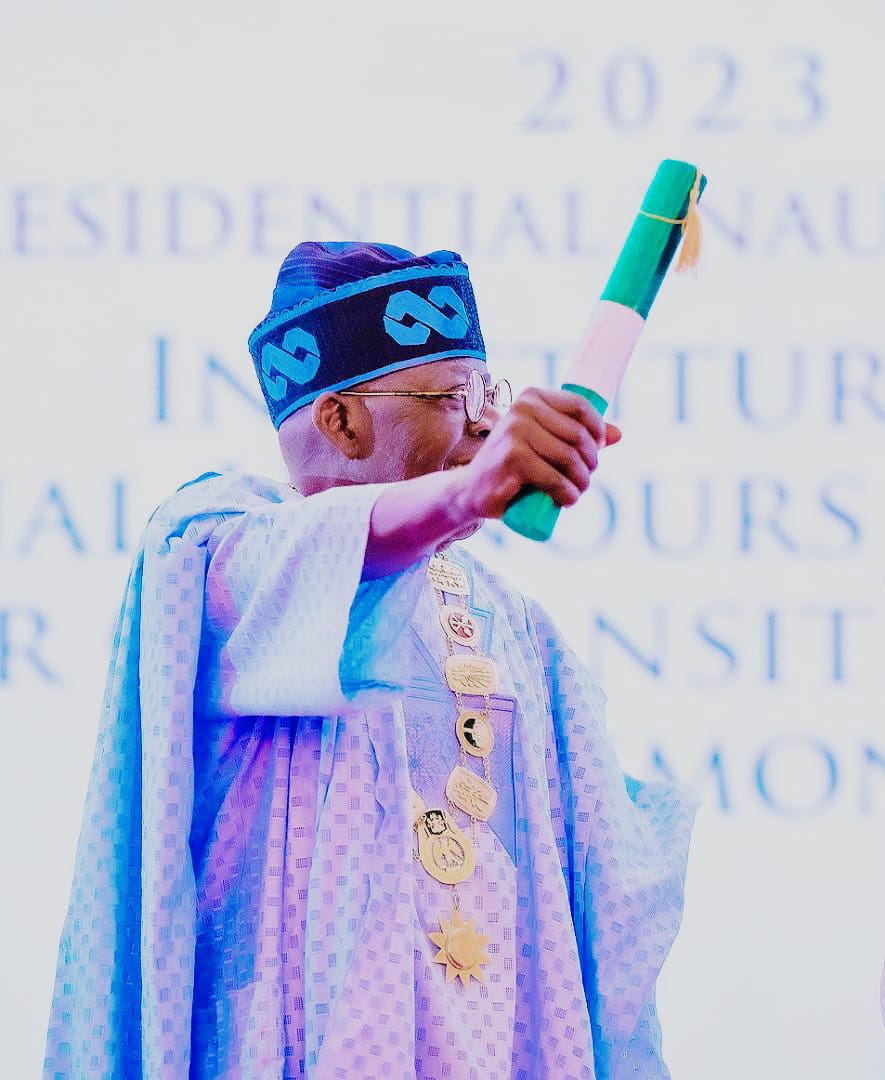As the President-elect, Asiwaju Bola Tinubu, takes the oath of office as Nigeria’s 16th President today, Nigerians have demanded quick actions in the areas of the economy, security, fuel subsidy and other critical sectors.
Tinubu, who was declared the winner of the February 25 presidential election, will be sworn in by the Chief Justice of Nigeria, Olukayode Ariwoola, at Eagle Square, Abuja.
Though the victory of the ex-Lagos State governor is being challenged by Atiku Abubakar and Peter Obi, the Peoples Democratic Party and Labour Party standard bearers, respectively, at the Presidential Election Petition Court, he would nevertheless take over from the outgoing President Muhammadu Buhari in a glamorous ceremony which would be witnessed by over 300 guests.
The ceremony will also be broadcast live to millions of Nigerians at home and abroad.
In preparation for the inauguration, the authorities have tightened security in the Federal Capital Territory with the deployments of soldiers, policemen, undercover operatives and counter-terrorism units at strategic locations and public facilities, including hotels where invited guests were accommodated.
Also, the military and the police have been conducting aerial surveillance of the FCT with helicopters flying overhead.
Ahead of the transition of power to the president-elect, scores of representatives of foreign governments, diplomats and heads of international organisations began arriving in Abuja, on Sunday.
Against the backdrop of the challenges facing the country, economic players, including the Nigeria Employers’ Consultative Association, Nigerian Economic Summit Group and the Manufacturers Association of Nigeria admonished the former Lagos State governor to tackle inflation, stabilise the exchange rate and ensure the removal of fuel subsidy within his first 100 days in office.
In an interview in Lagos, the Director General of NECA, Mr Wale Oyerinde, said his group expected Tinubu to put together his economic team within the first 100 days.
He noted that the incoming administration should be able to create a blueprint for reviving the refineries and removing fuel subsidies.
Oyerinde said, “We expect that they would have shared definitive economic philosophy that they will use to run the country a definite economic philosophy.
“Within the first 100 days, they must come up with a blueprint for reviving the refineries and removing fuel subsidies. In the first 100 days, we believe they must also have a blueprint to deal with all revenue leakages including oil theft.”
The NEC Director-General further said the new administration must build a consensus around its economic philosophy and get the buy-in of all Nigerians.
Oyerinde highlighted the critical roles of the private sector in moving the nation forward, stressing that the next administration must define the sector’s roles in its economic plan.
He said, “We expect that in the first 100 days, they would have built consensus around their economic philosophy that will take Nigeria out of the hole that we find ourselves in. But the first thing is that the economic team that drives the fiscal and monetary policy must be in place in the first 100 days.
“They must have formed their administration and come up with a blueprint for the economic revival. They must build consensus around their economic program so that Nigerians and all stakeholders can also support it. And they must also share a clear role of the private sector in their administration.”
A facilitator with the NESG, Dr Ikenna Nwaosu, who observed that Tinubu was yet to unfold his economic blueprints, urged him to unite Nigerians.
He noted, “The man has not unfolded any economic blueprint, but the most important part is that he has to unite the country. As he rises above the partisan nature of politics and checks the inflation and exchange rate, they are rising too fast.
‘’The inflation rate, exchange rate, debt to GDP rate and oil subsidy; he can handle them in the first six months. These are the main issues, every other thing is additional.”
Credit: Punch
Warning: Undefined variable $post in /home/frcnpositivefm10/public_html/wp-content/themes/newsup/inc/ansar/hooks/hook-index-main.php on line 117

